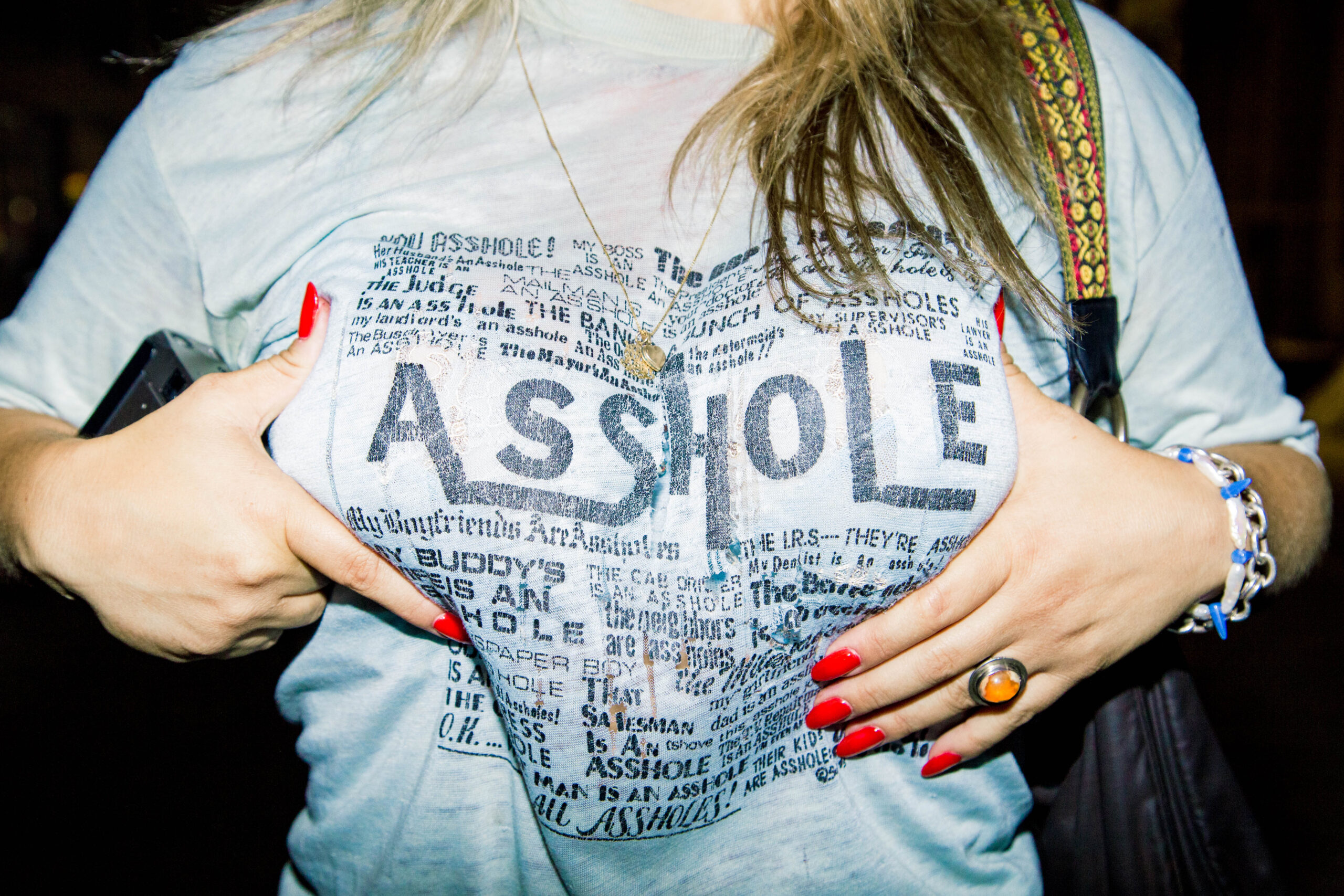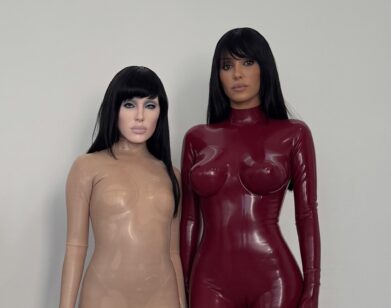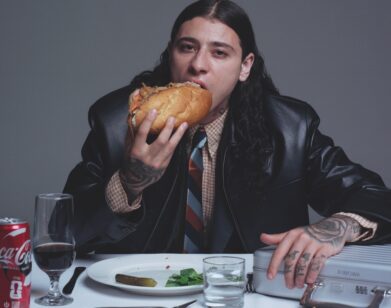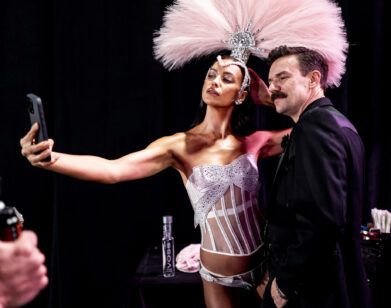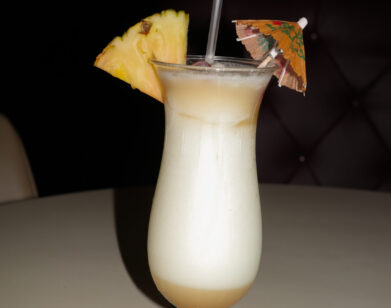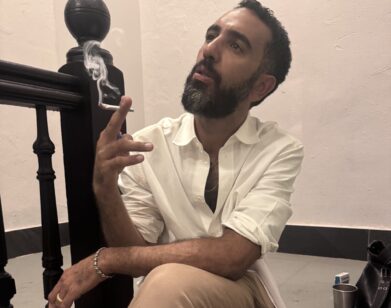XXX
Luisa Opalesky on Age Gaps, Dick Watches, and Daddy’s Daydream
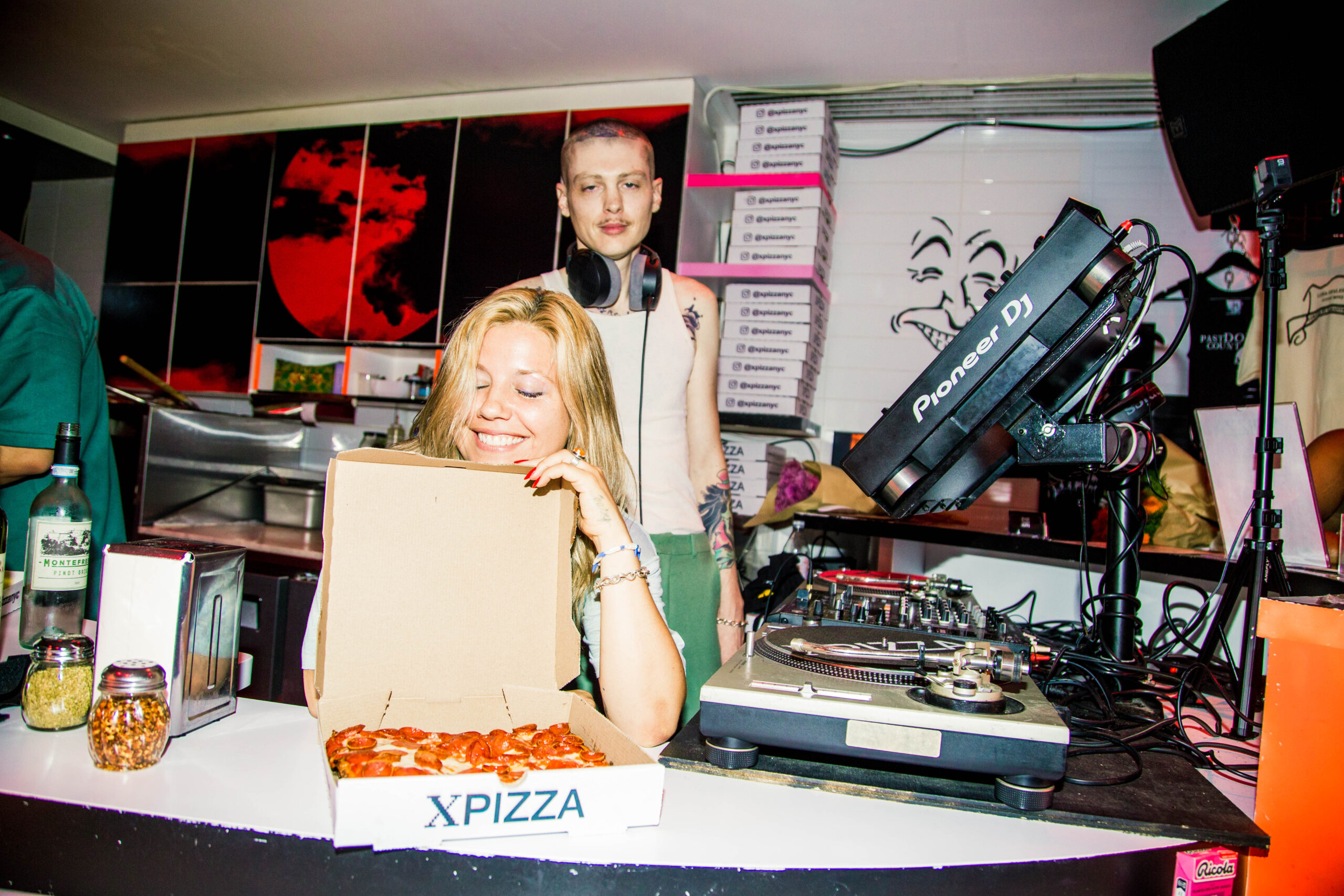
The artist Luisa Opalesky photographed by Marissa Fortugno.
Luisa Opalesky enters the red-lit room of XPizza surrounded on all sides by her own photographs. At the opening of her new show Daddy’s Daydream, flashes of naked bodies, and the sound of heavy bass, created a free and shameless atmosphere for friends, art enthusiasts, and pizza lovers alike. Born from a Venezuelan mother and Croatian father, Opalesky uses her heritage and upbringing as the foundation of her art. Comprised of images so provocative they’d probably be flagged on Instagram, Daddy’s Daydream coheres around the artist’s appreciation for the naked body while broaching Opalesky’s complicated family history. At the opening, we stole 15 minutes with the Interview alum to talk dick watches, self-love, and healthy portrayals of father-daughter relationships.
_________
ARY RUSSELL: Let’s start. Knowing your background, tell me about the intersection between your upbringing and this show.
LUISA OPALESKY: Absolutely. I mean, the show’s really about my dad, but it’s also about my parents kind of being my partners. I was really the parent in a lot of ways. My mom was 19 when she had me, and my dad was 50.
RUSSELL: Wow.
OPALESKY: And a lot of the work is about the body and my relationship with looking at the body. So I definitely feel like, on the Venezuelan side, it was always “skinny, clothes will look good on you.” There was an interesting relationship to fashion and image. But with my dad, it was always about athleticism. From such a young age, being aware of that kind of stuff is very influential in the work. And sometimes I’m like, “Why am I so body-obsessed? This is unhealthy.” And then I’m like, “Oh, right, because since I was six years old…” I think that there’s an interesting correlation there with image and the way you present yourself as a woman. My mom had a huge role even in the way that I look at my relationships with other women. My parents were very young at heart, even though one was a lot older.
RUSSELL: I wonder if your dad’s emphasis on, “you have to eat this, you can look this way” was about retaining his own vitality.
OPALESKY: I think that it’s really his projection of how obsessed he is with his own image, even though he would never admit it. He is all about being fit and healthy, and I understand where he is coming from because he just wants to always be self-reliant. But it’s funny that through therapy and all the work that I’ve done in the past three years, it’s almost like a double-edged sword where it’s like, amazing in some aspects, but then in other ways you’re really left solo. You’re left very isolated because there are such high expectations of yourself that it’s kind of unattainable. And this invincibility is not realistic. I just idolized him so much ever since I was little, and I was always terrified of losing him. He was so much older. He does kind of have this invincible ethos or mystique because of how he’s instilled those themes in my life from a very young age.
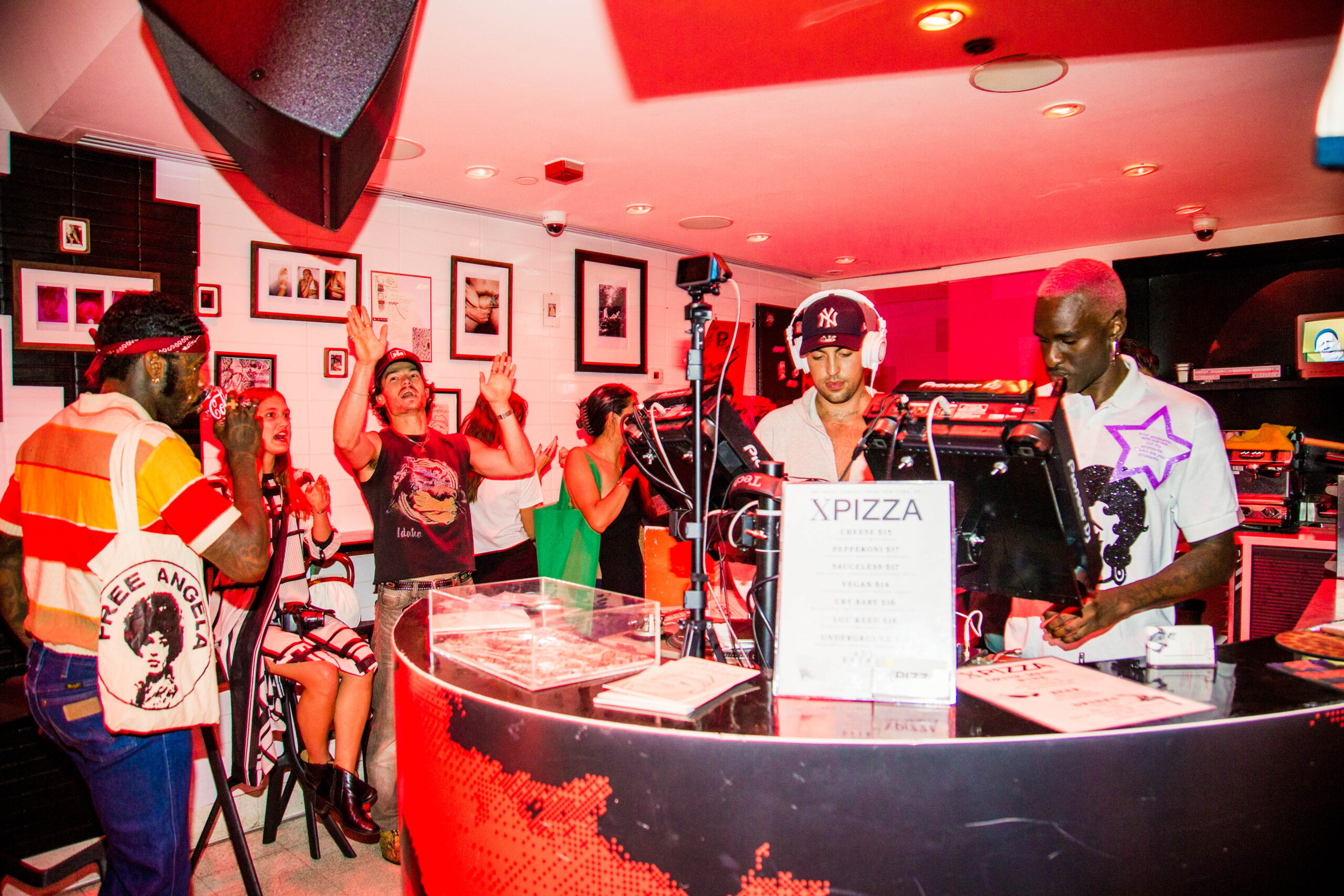
RUSSELL: I don’t know if idolatry is the right word…
OPALESKY: Yeah. And my dad and mother were constantly validating me if I looked more trim or more athletic. I would always get validated and loved for that. So it’s—
RUSSELL: It’s rewarding. Those are the times where they notice you almost more and give you a bit more affection.
OPALESKY: It made me feel more invincible for sure. But I forgive them for everything. I think the point is that it has really shaped the standards that I think are really hard to achieve.
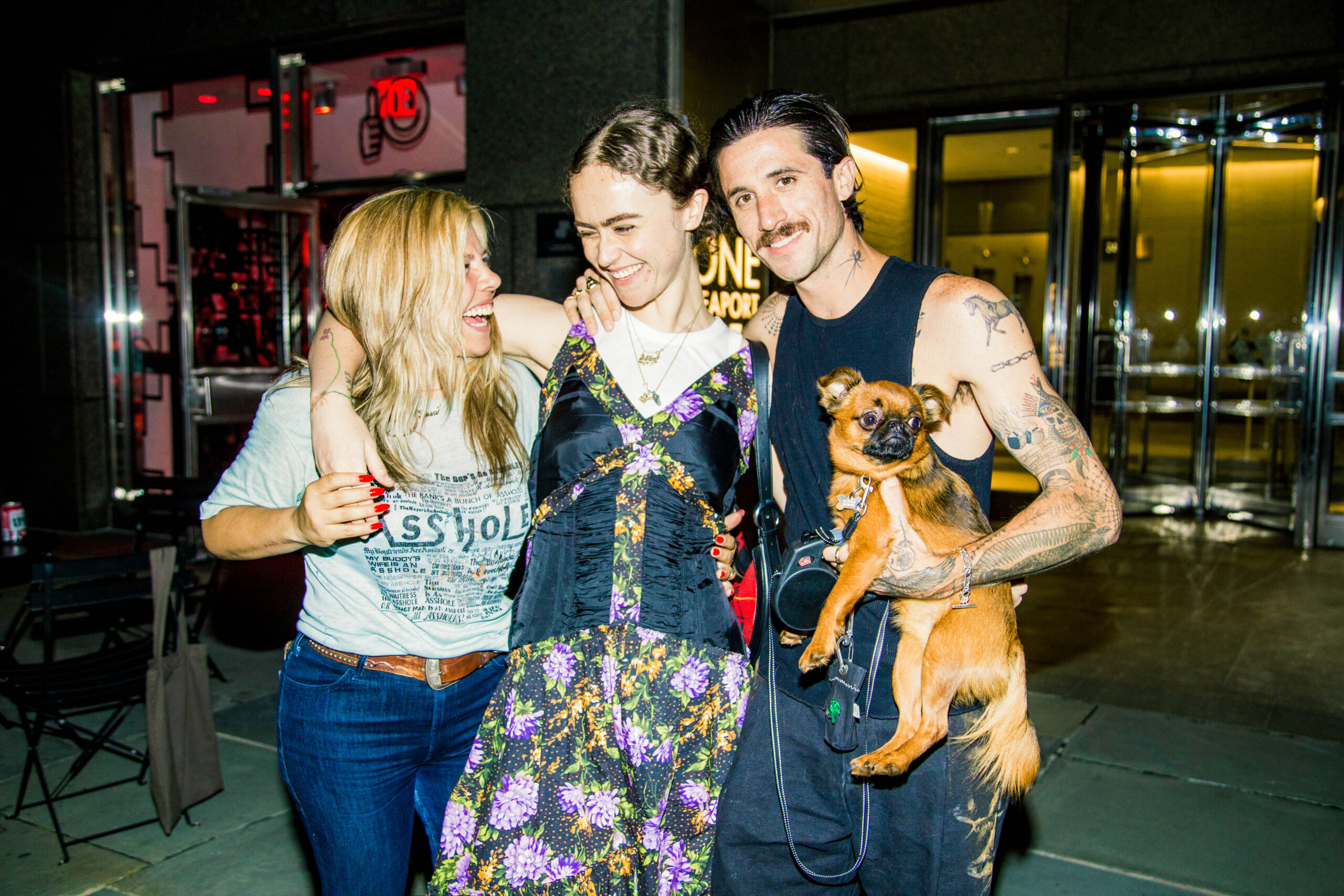
RUSSELL: You had mentioned that your father was 50 and your mother was 19. At the time, did you know that that was considered a pretty significant age gap?
OPALESKY: I mean, for sure. I think just the fact that when I was seven or eight and I was in Caracas walking into town and I stopped in the middle of the street and just started crying, bawling, because I was thinking, “Oh my God, one day I’m not going to have him anymore, and he’s so much older.” So that’s kind of when I started noticing that. It’s present in all of my work, because he’s kind of my number one favorite person to photograph, especially because I don’t really see a lot of older people represented in photography, smoking weed and kind of being one of us. He is very vivacious and he has a lot of stories. So I feel like I’m very interested in people that are storied and have history. And he was the bad boy of classical music. He was notorious, had a reputation and stuff. So he has a lot of good stories.
RUSSELL: Did you have any fears involving this project?
OPALESKY: I mean, it’s kind of a tricky synopsis to write about the show because I think it’s much more about intimacy than it is about sexuality. And there is a big difference there. I think that people just kind of need to be talking about that, and I don’t really feel that they are.
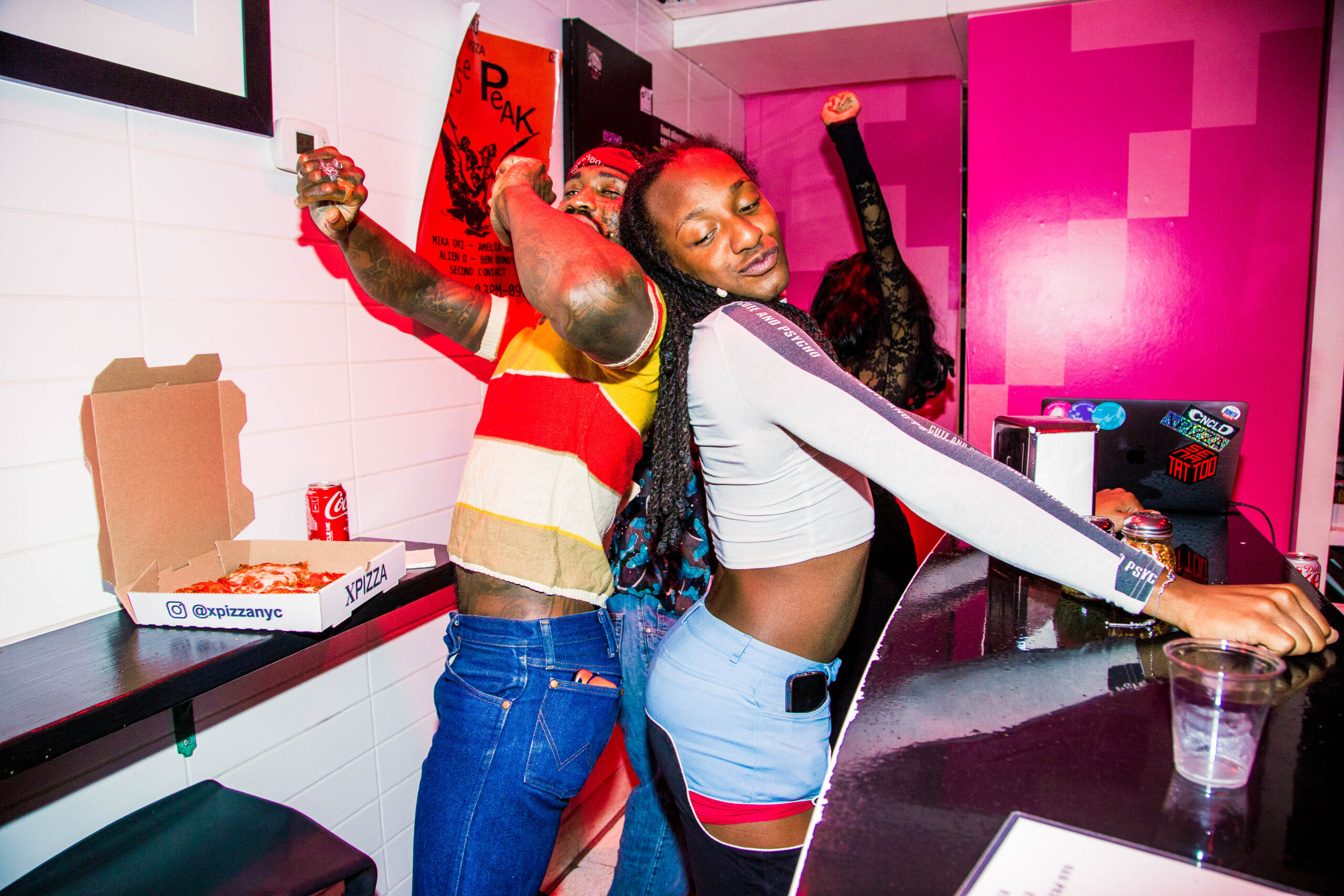
RUSSELL: Yeah.
OPALESKY: It’s something as simple as getting a kiss on the mouth versus getting a hug. I grew up with a lot of touch. Obviously my mom is Venezuelan. I have thousands of pictures of my feet on my mom’s cheek. But yeah, same with my dad. Just very close. And I think that can be really weird for people to hear.
RUSSELL: I’ve noticed a lot of sexualization of father-daughter relationships, daddy kinks or Lolita complexes. So I’m curious, do you see your work as challenging? Was it a conscious challenge against that kind of media that is sexualizing what’s supposed to be one of the most intimate relationships you could have with someone?
OPALESKY: Absolutely. And I think that the fine line is in the imagery. Having nude photos of my dad in the tub with the injuries, and then these very graphic nudes of myself. I just think that together they kind of tell a story instead of assuming that it’s one thing. I think that having layered imagery and having it all in one place, it felt very safe for me, but also really, really vulnerable.
RUSSELL: How did your parents react? Have they seen the work?
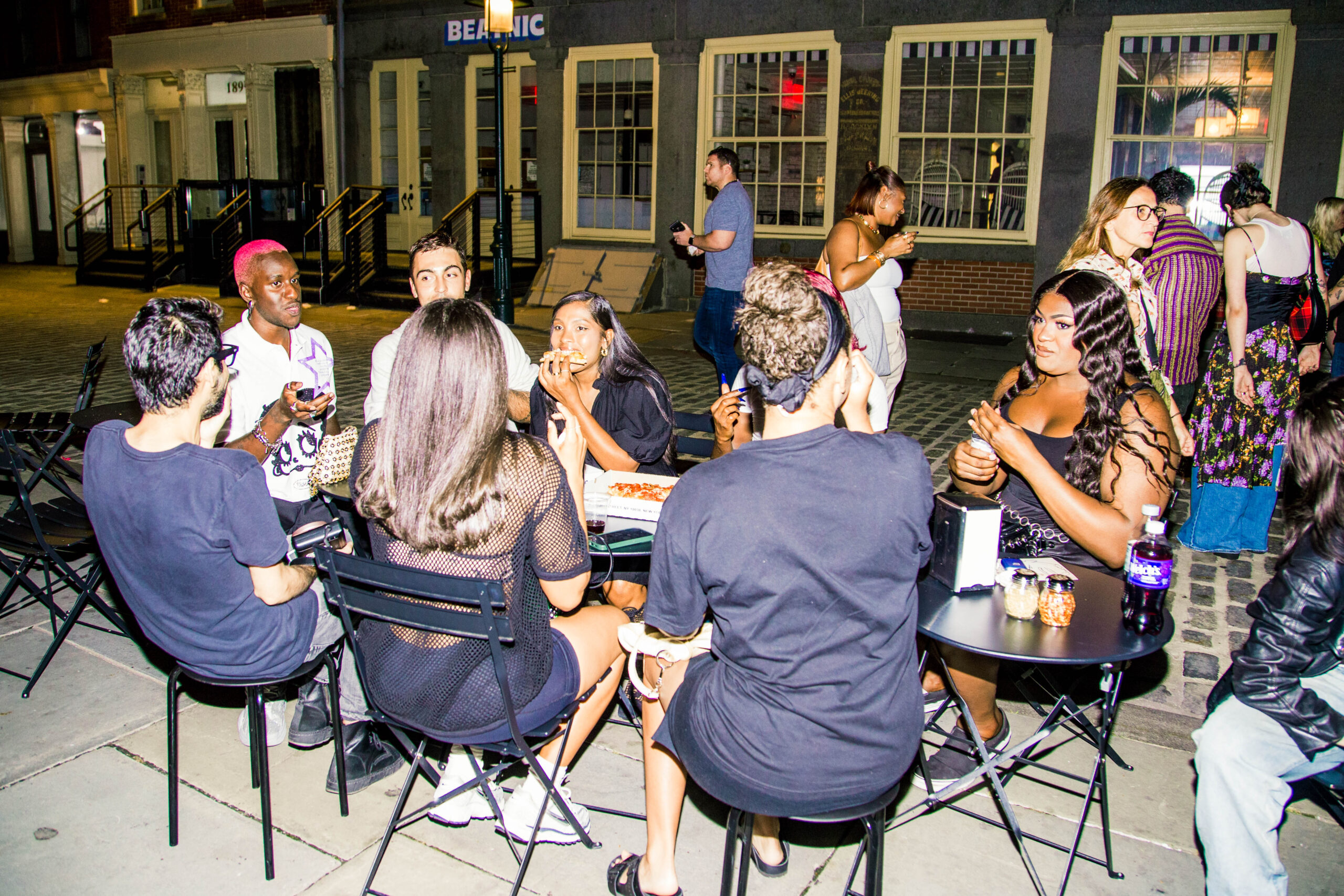
OPALESKY: No. My dad definitely asked me if there’s any nudity and I said yes. And I told him that he was going to be featured in the tub, but nothing showing. I told him that there’s a photo of my boyfriend with his dick wrapped around his wrist.
RUSSELL: Yeah, I saw.
OPALESKY: It’s called The Watch.
RUSSELL: When I saw that, I was like, “I’m trying to figure out what that is. I see pubes. I don’t know what’s going on.”
OPALESKY: What’s the time, baby? What time is it?
RUSSELL: Was your boyfriend just like, “Fuck it! let’s do it.” Or did you have to do some convincing?
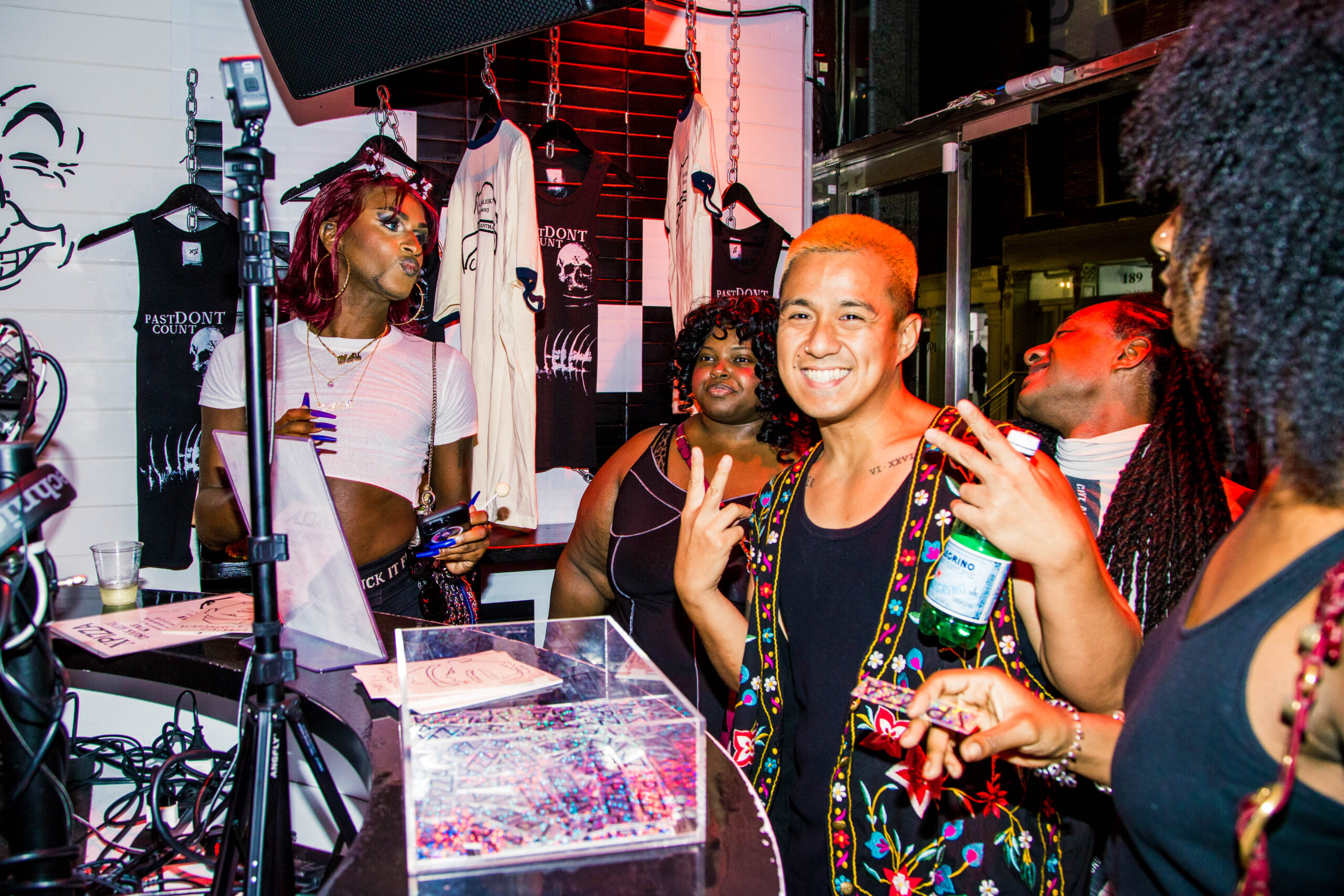
OPALESKY: No, he does it every morning at 8:30. It’s time to get up.
RUSSELL: Okay, so he is very open about it.
OPALESKY: Yeah.
RUSSELL: Was it important for you to find someone who was sexually free, and able to make fun of themselves?
OPALESKY: Serious? Yes. And my boyfriend is a lot like my dad.
RUSSELL: Oh, yeah?
OPALESKY: Yeah. Big sense of humor, a very old soul, likes to collect coins, that kind of thing. But besides him being like my father, he is very uniquely open and free and funny. It’s very refreshing in this day and age to have people make fun of themselves.
RUSSELL: Yeah, make fun of your dick.
OPALESKY: Yeah, please. Make fun of your dick.
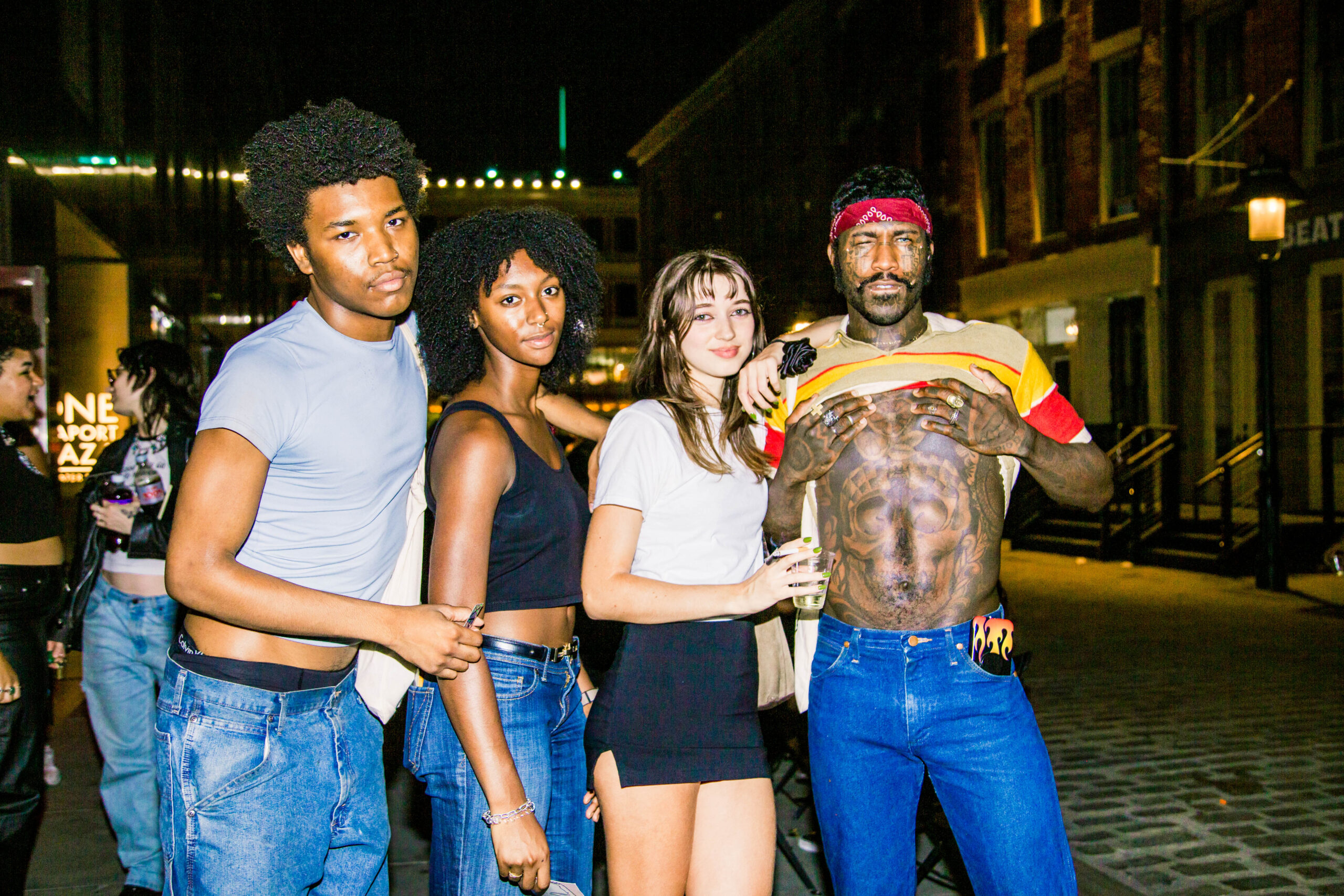
ARY RUSSELL: There’s lots of conversations about what vulvas and labias should look like, especially with porn. Everything’s very nip tuck, cut clean, and it makes actual real life people with vulvas be like, “My pussy doesn’t look like that. What the hell!”
OPALESKY: Yeah. So that’s a photo I took of someone I know. I love that you thought that was me though. That’s so cool.
ARY RUSSELL: Well, because it’s kind of out of focus.
OPALESKY: One of my favorite aspects to a lot of the work is that you can’t really tell who people are. I am just so in love with the way that the body can vary. I just want to see everything. I want to meet every type of person. I’m just unbound at this point. I think the human body is so gorgeous and I love showing people that aren’t represented: vaginas that aren’t represented, dicks that we don’t see in certain ways. And I’m just always trying to look at things from a different angle and share it. I want to make images that I don’t see.
RUSSELL: Exactly. Love all pussies, love all dicks.
OPALESKY: Absolutely adore.
